Recycled Glass Gives Materials New Life
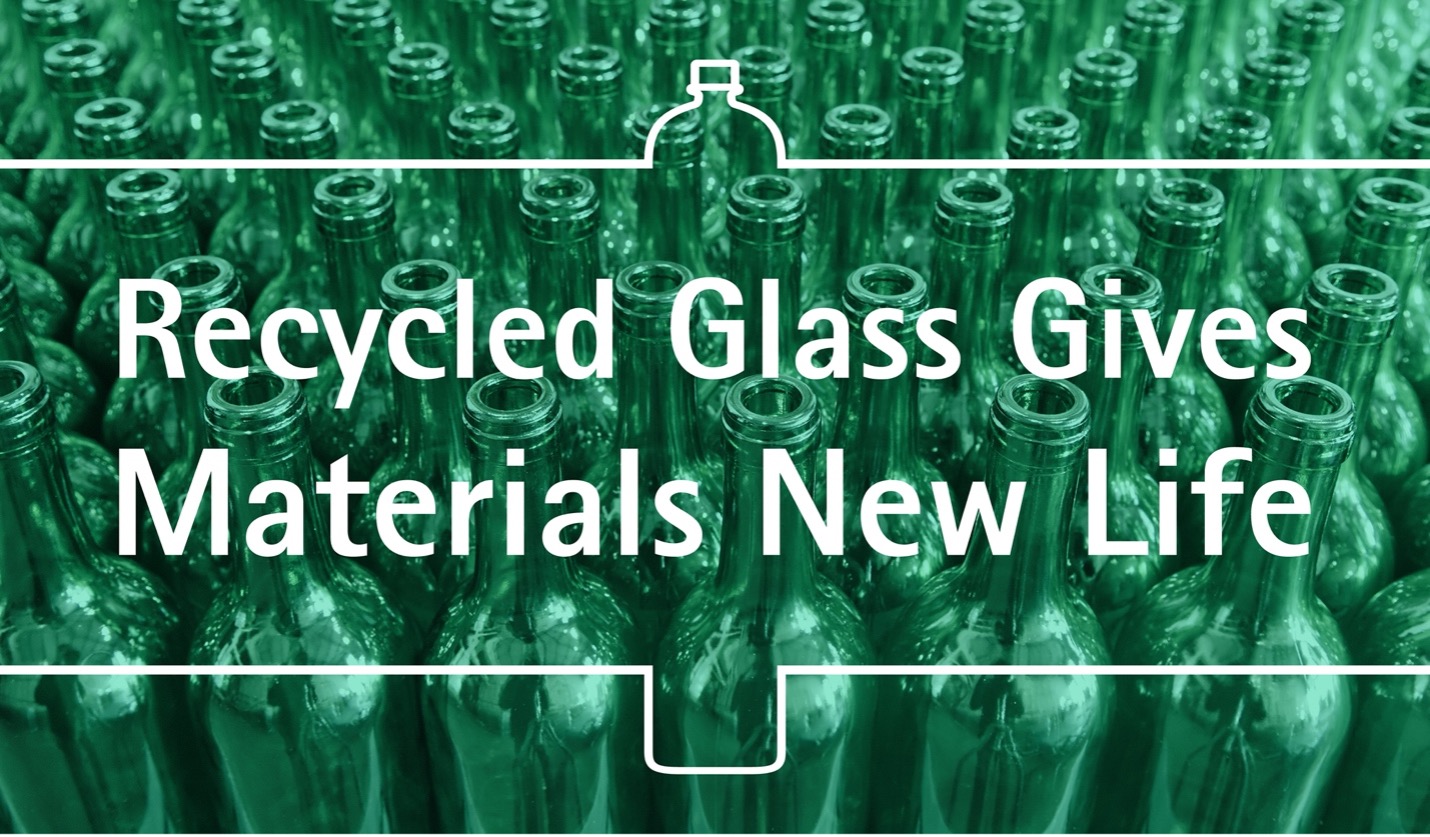
Glass is a universal container, building material, and art component that we’ve relied on for centuries. Food brands and manufacturers depend on glass to store sodas, fruit spreads, pickled vegetables, and other goods.
While glass is invaluable and many of us rely on it in our daily lives, not all of us realize how reusable glass is. Can you recycle glass bottles? Absolutely. More and more packaging, container, and closure brands are investing time and money into recycled glass products than ever before.
Part of this is because it’s so easy to recycle glass repeatedly. To learn about recycled glass, the ins and outs of the industry, and how you can invest in greener packaging for your business, there are things you should keep in mind.
How are glass bottles recyclable? Let’s discuss the answer to this question and more.
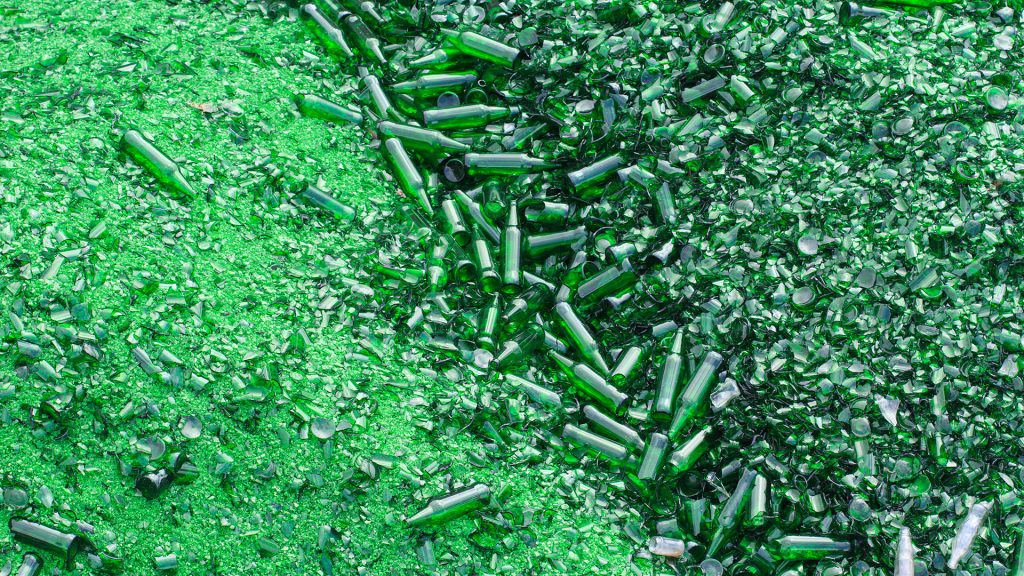
A General Overview Of Recycled Glass Terminology
Before you start investing in recycled glass containers, it’s helpful to understand some key terminology so you know what you’re working with.
Your carbon footprint is the measure of the impact that your business activities have on the environment. By investing in glass bottle recycling, you can work to minimize your carbon footprint and sometimes offset it completely by combining it with other green tactics like solar power.
When a business hits a Zero Waste goal, that means that it has eliminated over 90% of its waste discharged to the land, water, or air. Zero Waste goals benefit businesses, consumers, and the planet alike.
Waste diversion refers to avoiding waste dumping into landfills or waste incinerators, both of which have a noticeable impact on the environment.
Sustainability is meeting present needs without compromising future needs that could impact generations to come. While sustainability was a previous industry standard for many businesses, even more, are looking toward renewability today.
Renewability refers to products and energy sources that can be reused or regenerated indefinitely. Renewable goals are a high standard for several industry leaders and extend far beyond knowing how to recycle glass bottles.
Waste mitigation sounds fairly self-explanatory and, in many ways, it is. By mitigating and offsetting waste production, it’s easier to encourage successful recycling initiatives. A key component of recycling revolves around eliminating waste generation in the first place.
Upcycling is the process of transforming by-products, waste materials, useless, or unwanted products into new materials or products perceived to be of greater quality.
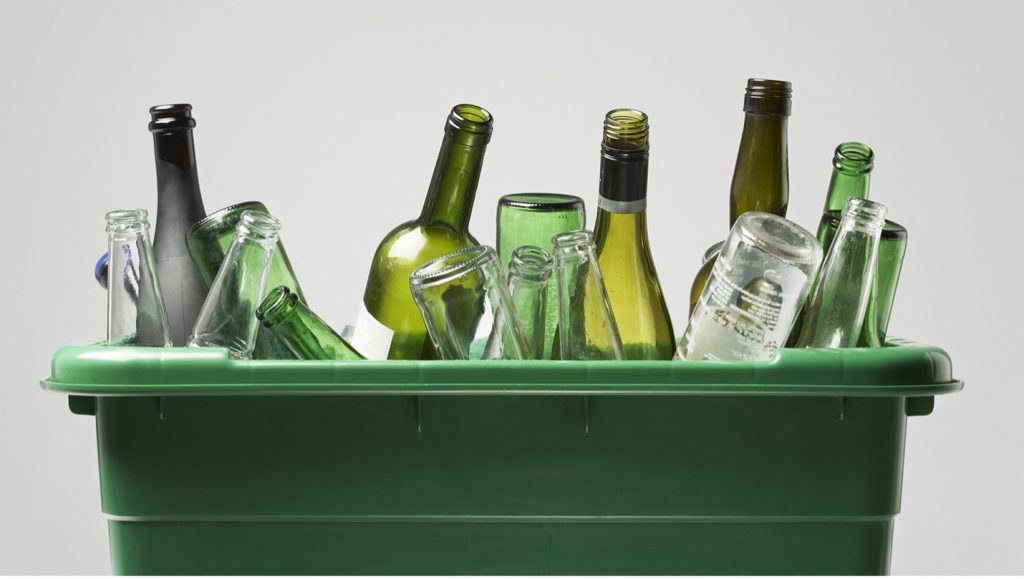
How And Where You Should Recycle Glass
If you’re interested in glass bottle recycling, you’re in luck. Many cities offer local recycling programs, which means that all you need to do is collect your glass products, place them in your recycling bin, and ensure that the bin is available for collection on pickup day.
For glass drink, food, and cream containers, rinse them thoroughly since the contents may not be recyclable or biodegradable. If you fail to thoroughly clean products ahead of glass bottle recycling, it can cause contamination which leads to further glass waste.
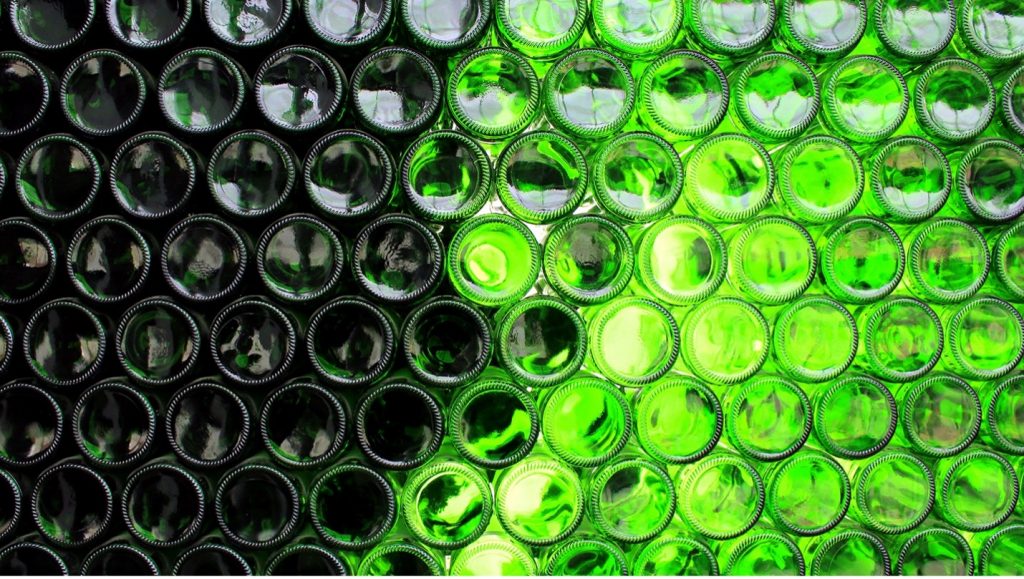
What Shouldn’t You Recycle?
Even if something is composed of recyclable materials, not every item is suitable for glass bottle recycling. For starters, even if a product includes glass components but is primarily made of a material like plastic, it’s not suitable for pickup.
Speaking of glass recycling, certain glass items aren’t recyclable. Some types of glassware like Pyrex, for instance, have different melting points than jars and containers, making them less than ideal candidates for the glass bottle recycling process.
If you have items that you aren’t sure you can recycle, it’s always a good idea to donate them or drop them off at a used goods store. You can also upcycle your used goods when possible. For some businesses, upcycling is easier said than done, but if you have the capacity and resources, it’s worth a look.
With this information, you can take greater producer responsibility for what you do and don’t recycle.
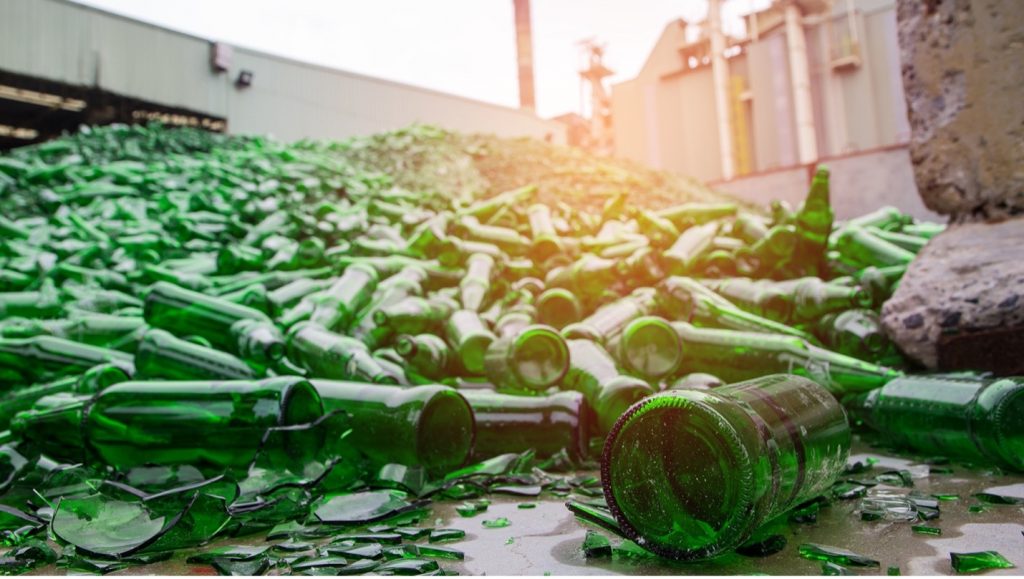
The Effects Of Recycling On Our Environment
We know that recycling helps the environment but how do glass bottle recycling and similar recycling projects get the job done?
Glass recycling can play a significant role in reducing the emission of greenhouse gases and water pollutants. By using recovered glass material for making jars and containers, we can effectively minimize waste and reduce our carbon footprint.
Also, extracting and processing raw materials generates a fair amount of pollution. By recycling a ton of glass jars and bottles, we’re conserving just over a ton of raw materials that can include, sand, soda ash, and limestone. The end result is a lessened dependence on harmful extraction practices, producing a significant benefit for the environment.
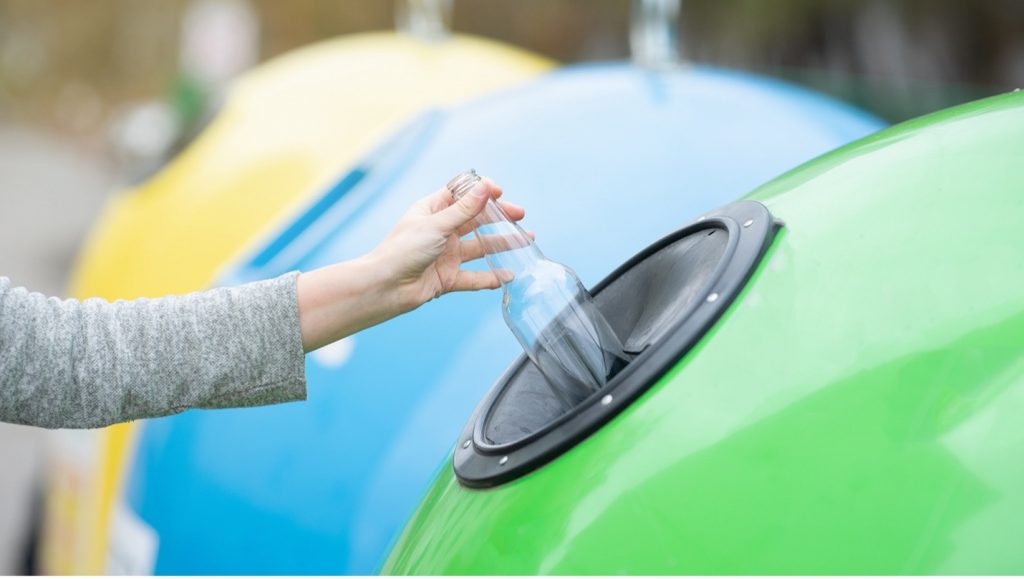
Glass Bottle Recycling: Today And In The Future
Now that you know where the state of recycling is currently, what does the future of glass recycling look like? For starters, expect consumer packaged goods to include more recycled materials.
Big-box retailers like Amazon now utilize recyclable bags and list recycling locations for certain shipping parcels. Brands that rely on glass products will likely invest in reclaimed and recycled materials for manufacturing more than ever before.
Beyond these considerations, experts also anticipate that recycling will see more regulation over time. Industry panelists and specialists believe that there will be greater labeling uniformity and visibility, as well as greater oversight of recycling programs and initiatives.
Also, with the growth in e-commerce, key in-store packaging needs might become obsolete for certain brands. Since there isn’t as much of a direct drive to highlight packaging on virtual shelves, some manufacturers are rethinking the role that certain packages and containers play in their businesses.
To learn more about glass bottle recycling, the future of recycling, and how you can invest in recycled materials for your business, contact the container and closure professionals at BottleStore.com.
Whether you run a canned food business or you’re starting a beauty brand, we’re here to help with all your container needs.
